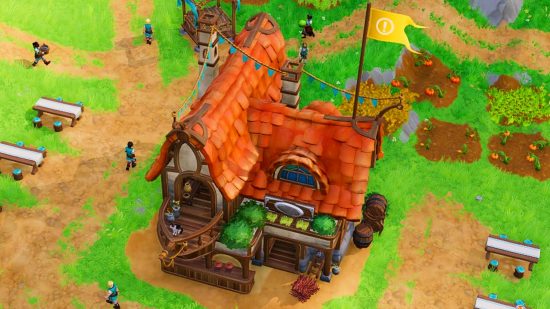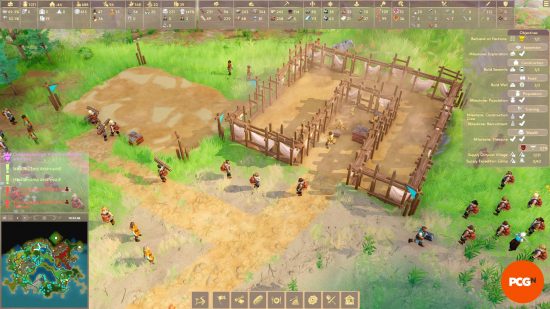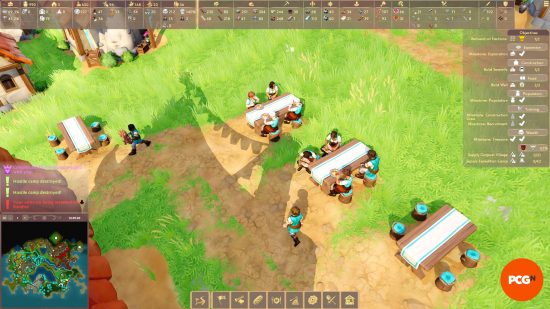I’ve never liked strategy games. I’ve always put them in a box with war games, political games, and the like – I don’t want to have to think about what I’d do if I were running an army or a country. None of that has ever appealed to me in real life, so, with a gaming backlog longer than War and Peace, life-devouring games like Civilization and Command were just never my priority.

But then the curtain opens on Steam Next Fest, and I’m tasked with finding and writing about the best indie demos in the world. Two strategy games fall into my lap: Solium Infernum and Pioneers of Pagonia. The former is an outlier. As my colleague writes, Solium Infernum is unlike any strategy game you’ve ever played, and this is the very reason I give it a try myself – and I love it. The latter, meanwhile, has a city-building simulation aspect, and I stumble upon the colony sim myself, attracted by its adorable German design and what I later learn is known as ‘Wuselfaktor.’
Wuselfaktor doesn’t have a direct translation into English – it’s a German gaming term for idly watching little AI-controlled people go about their lives, and, thanks to Pioneers of Pagonia, it’s become my new favorite pastime
I know strategy and RTS games offer the thrill of being a fly on the wall as standard – watching over your characters as they react to your decisions has a real god-complex kick to it. That said, the historical angle of Age of Empires or the real-life, metropolitan drudgery of Cities Skylines have never been enough to win me over. Instead, Wuselfaktor in Pioneers of Pagonia looks as it sounds, with a traditional German aesthetic and a fantasy element combined.
Beginning with one of the multiple Pioneers of Pagonia game modes, I’m given instructions on which buildings to place and in which order. Build a guard tower, build a forester’s hut, build a tavern and tables. A few clicks later, and I’m just waiting for things to be finished. The game’s cute, sure, but the gameplay is a little too hands-off. This is where I’d usually give up. But zooming in on my little German settlers, gesturing at each other around a dinner table or lugging lumber to the newest build site, I suddenly find myself invested in their lives – and entertained during the game’s inevitable downtime
And so I continue. I build a quarry, a sawmill, another forester’s hut, and another hunting lodge. More jobs require an increased population, so I build cottages, which in turn need more taverns and market stalls to keep their inhabitants fed and happy. Suddenly, I’m starting to understand the appeal. I’m protective of these tiny humans and I want them to thrive. The further into the game I get, I discover this fine line between figuring out what to build next and just waiting for things to happen
I realize that a building is on hold as there isn’t enough concrete to complete it, so I have to build a new stone mill and wait for miners to provide the mill with the Limestone. Again, strictly speaking, this is downtime, but now I’m invested – I know there’s a plan in the works and so I sit back and watch miners mine and builders build. There is an option to speed up the process, and make your little villagers start rushing around. But when you can just watch them go about their lives and check up on the hunter handing fresh meat over to the market stall owner, why bother?
I’m now ten hours into my strategy career, with nearly 1,000 settlers. I’ve joined with a neighboring faction to help keep specters and bandits at bay, and, thanks to the procedurally generated worlds of Pioneers of Pagonia, I’m still discovering new landscapes and environments. My little world is growing, alongside my opinion of the strategy genre, as I discover that there’s more to these games than destruction and domination. Pioneers of Pagonia – and its Wuselfaktor element – is about building something new while watching your community work together and thrive.


